Description
Table of Contents
-
What Are Sunflower Seeds?
-
Nutritional Composition
-
12 Health Benefits of Sunflower Seeds
-
Culinary Uses & Serving Suggestions
-
How to Store & Prepare Sunflower Seeds
-
Are There Any Side Effects?
-
Why Choose Pyazon’s Sunflower Seeds?
-
Buying Information & Packaging
-
Frequently Asked Questions (FAQs)
-
Conclusion
-
External Resources
1. What Are Sunflower Seeds?
Sunflower seeds are edible seeds from the large flower heads of the sunflower plant (Helianthus annuus). Widely consumed across the globe, they have long been used for both culinary and medicinal purposes. In Pakistan, they are increasingly popular as snack foods, salad garnishes, and healthy supplements.
2. Nutritional Composition of Sunflower Seeds
Sunflower seeds are extremely nutrient-dense. A 100 g serving provides approximately:
-
Calories: ~584 kcal
-
Protein: ~20 g
-
Healthy fats: ~51 g (mostly polyunsaturated and monounsaturated)
-
Fiber: ~8.6 g
-
Vitamin E: ~35 mg (175% RDI)
-
Magnesium: ~325 mg (82% RDI)
-
Selenium: ~53 μg (97% RDI)
-
Zinc, phosphorus, copper, and folate
They are particularly known for being one of the richest plant sources of vitamin E and selenium—essential antioxidants for body healing.
3. 12 Health Benefits of Sunflower Seeds (Focus Keyword Usage)
1. Powerful Antioxidant Source
High in vitamin E and selenium, sunflower seeds protect cells against oxidative damage and inflammation.
2. Supports Heart Health
The combination of monounsaturated fats, fiber, and magnesium helps reduce cholesterol, maintain healthy blood pressure, and support cardiovascular function.
3. Boosts Immunity
Selenium and zinc are vital to immune system strength and help the body counter infections.
4. Promotes Healthy Skin & Hair
Vitamin E enhances skin elasticity and hydrates hair follicles, reducing dryness and promoting luster.
5. Supports Bone Health
Magnesium and phosphorus contribute to strong bones and prevent osteoporosis.
6. Mood & Cognitive Support
Folate, tryptophan, and magnesium help maintain serotonin levels and support a balanced mood.
7. Anti-Inflammatory Effects
Compounds such as flavonoids and phenolic acids reduce inflammation—beneficial for joint and general health.
8. Regulates Blood Sugar
Fiber and healthy fats slow digestion, helping to stabilize blood sugar in diabetic individuals.
9. Aids Digestion
The fiber content supports bowel regularity and promotes gut health.
10. Weight Management Aid
High in protein, fiber, and healthy fats, sunflower seeds can help suppress hunger and improve satiety.
11. Hormonal Balance
Selenium supports thyroid function, which in turn helps regulate metabolism and hormonal balance.
12. Cancer Prevention Support
Selenium and lignans in sunflower seeds have been studied for their potential role in preventing certain cancers.
🔗 For further reading on selenium benefits, check Harvard T.H. Chan School of Public Health and Healthline’s article on vitamin E.
4. Culinary Uses & Serving Suggestions
Sunflower seeds offer tremendous versatility in cooking and snacking:
-
Roasted seeds with a pinch of salt as a healthy snack
-
Sprinkled over salads, smoothies, and yogurt
-
In granola, energy bars, and trail mixes
-
In baking: bread, muffins, or seed crackers
-
As a crust for fish or chicken
-
Sunflower seed butter as a vegan spread
-
Toppings on soups, vegetable stir-fries, or even rice dishes
They bring a pleasant nutty flavor and a satisfying crunch to many recipes.
5. How to Store & Prepare Sunflower Seeds
-
Store in a cool, dry place in airtight containers to prevent the healthy oils from going rancid.
-
Refrigerate for longer shelf life—up to 6 months.
-
Roast lightly to bring out flavor; avoid over-roasting which may reduce nutrient contents.
-
Remove shells before eating (unless buying already-shelled).
6. Are There Any Side Effects?
Sunflower seeds are generally safe, but note:
-
High calorie density—excessive consumption can lead to weight gain.
-
May trigger allergies in sensitive individuals.
-
Overconsumption of selenium or vitamin E (very rare) may cause mild side effects.
-
Some seeds sold commercially may contain added salt or oils—read labels carefully.
7. Why Choose Pyazon’s Sunflower Seeds?
Pyazon ensures premium quality, backed by:
-
Organic, non-GMO sourcing
-
No artificial additives or preservatives
-
Freshly packed on order to ensure crispness
-
Hygienic, resealable pouches for freshness
Internally, you may link to your other seed products:
8. Buying Information & Packaging
Available in convenient pack sizes: 100g, 250g, 500g
-
Order via website www.pyazon.com
-
WhatsApp ordering: 0333‑0290299
-
Delivery across Pakistan, with Cash on Delivery option
-
Packaged with freshness seals and labels indicating nutritional value and expiry
9. Frequently Asked Questions (FAQs)
| Question | Answer |
|---|---|
| Can I eat sunflower seeds daily? | Yes, up to a handful (20–30g) daily is beneficial. |
| Are sunflower seeds safe for diabetics? | Yes, they help regulate blood sugar. |
| Do they support hair growth? | Rich in vitamin E and zinc, they promote healthier hair. |
| How should seeds be stored? | Airtight container; refrigerate for longer shelf life. |
| Any children safe usage? | Yes, in moderation—ensure mash or chop small pieces for little kids. |
10. Conclusion
Incorporating sunflower seeds into your routine is a smart, flavor-packed way to boost nutrition. Whether you’re looking to enhance heart health, strengthen bones, support immunity, or simply enjoy a crunchy snack, sunflower seeds from Pyazon deliver taste and benefits in every bite.
11. External Resources
-
🔗 Harvard T.H. Chan School: Selenium’s Role in Health
-
🔗 Healthline: Vitamin E Benefits & Sources
-
🔗 Medical News Today: Sunflower Seeds Nutrition Facts

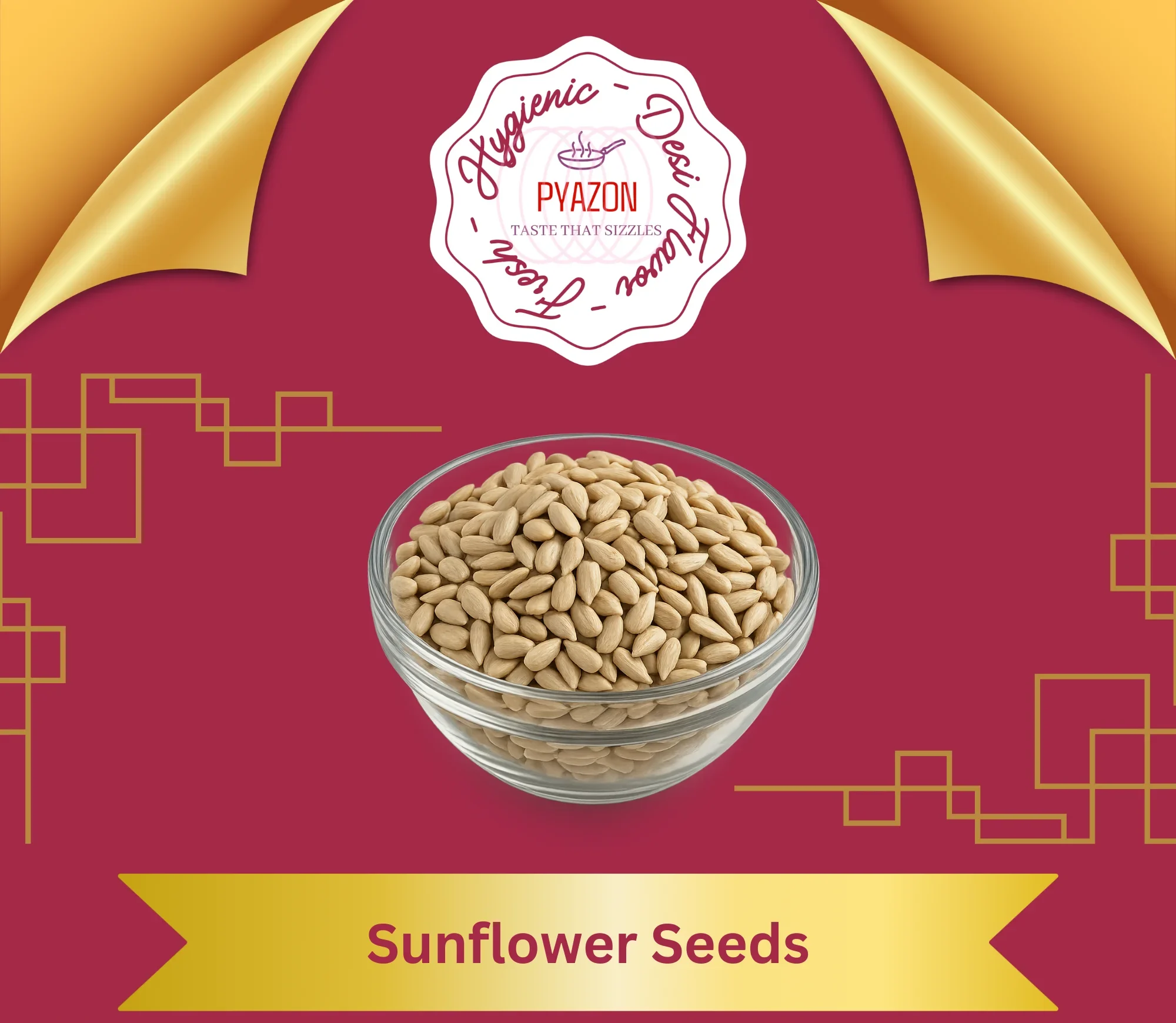
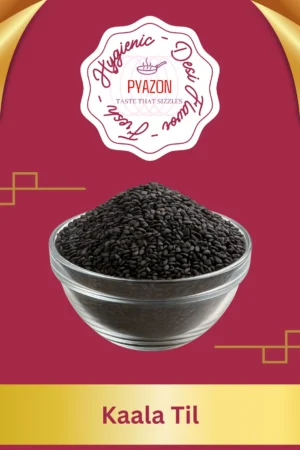
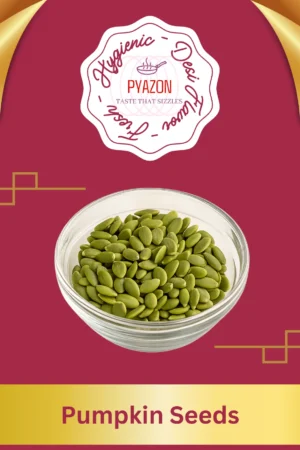
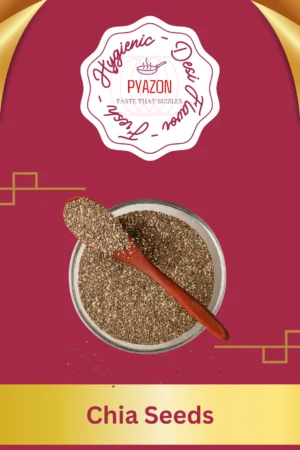
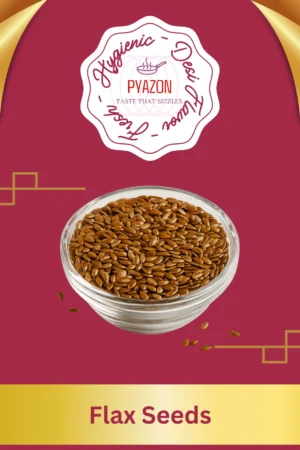
Reviews
There are no reviews yet.